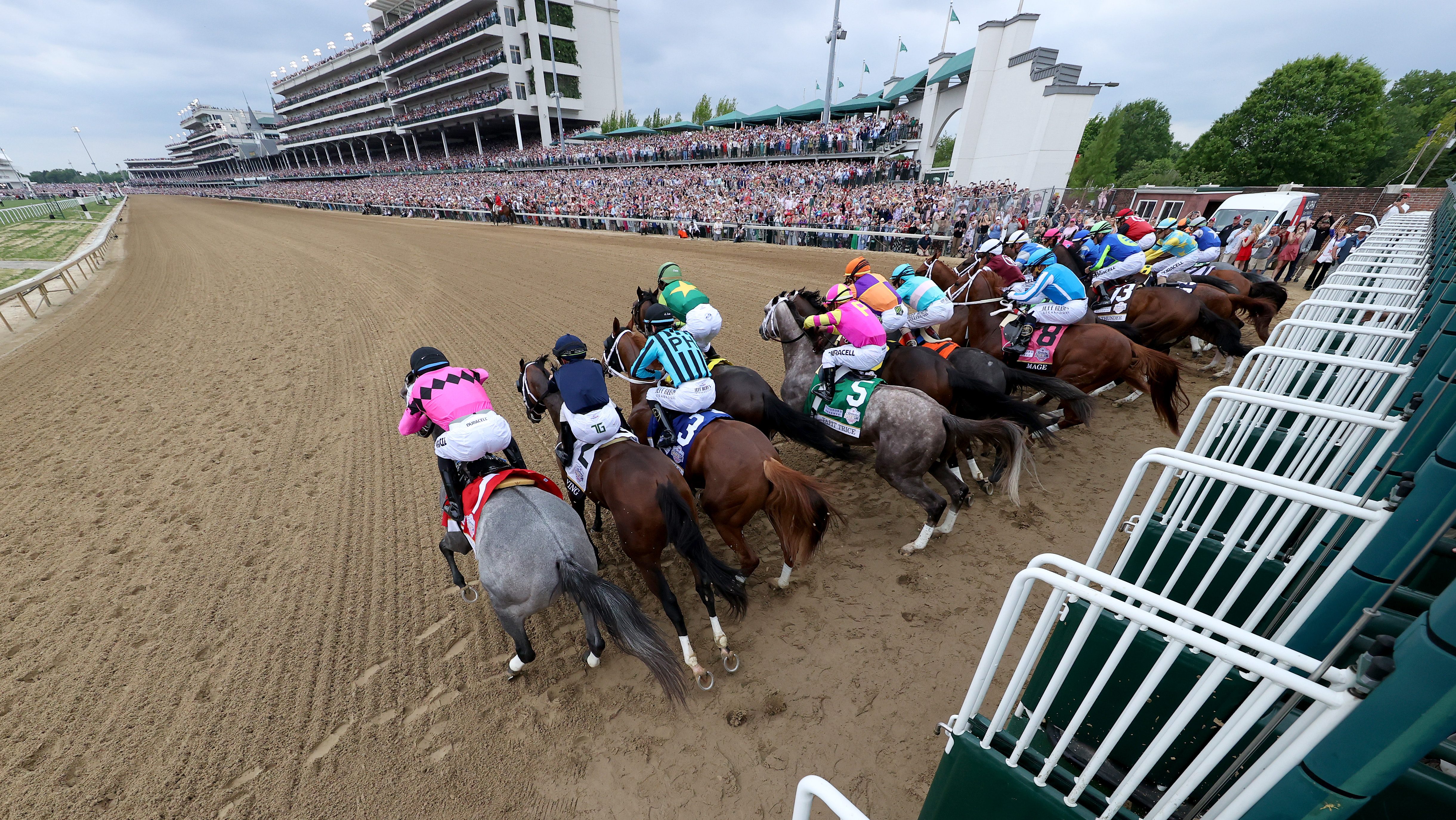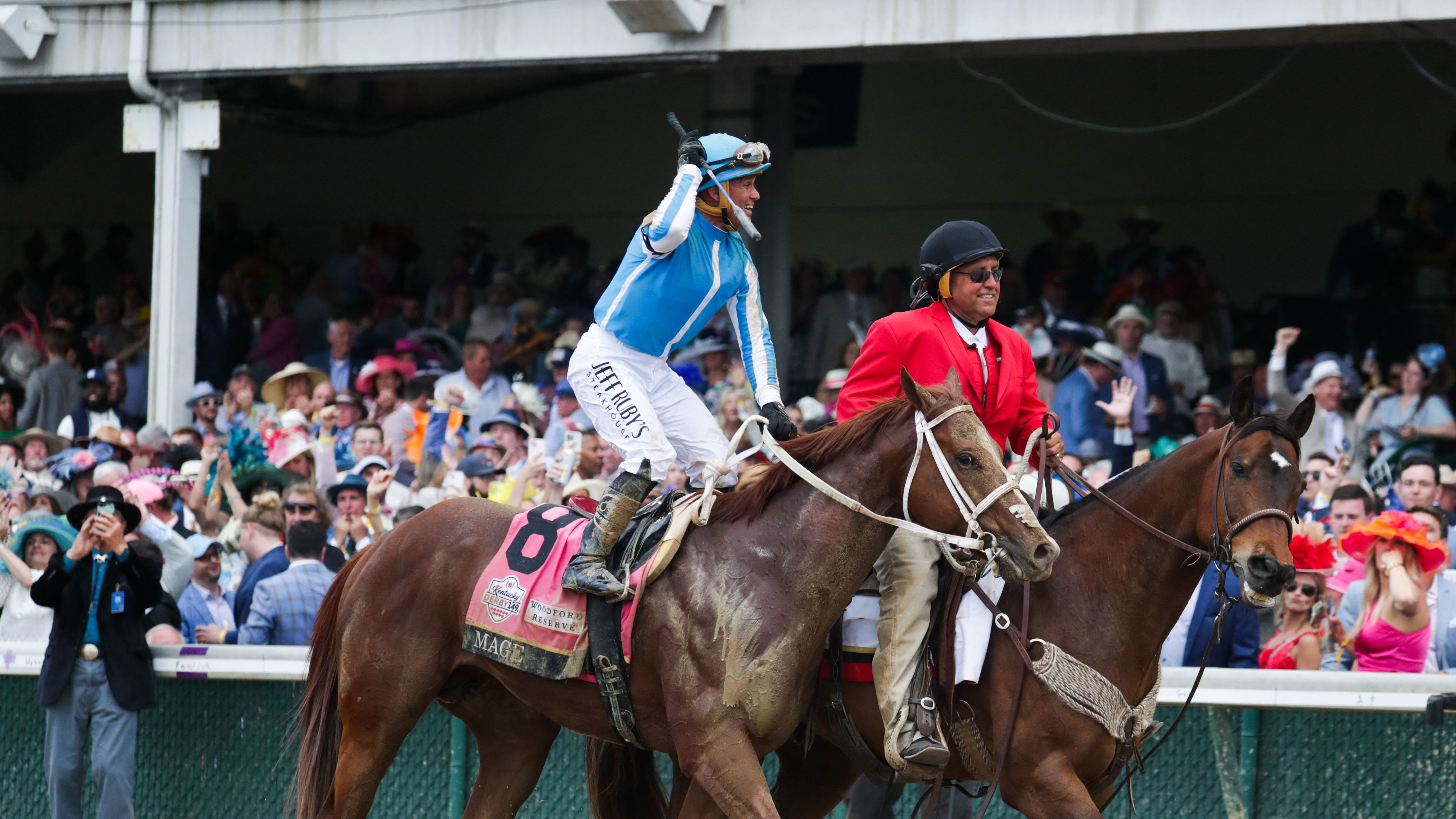Picking a horse to win the Kentucky Derby is easy.
Placing a bet is as close as a cellphone, tablet, computer or even a smart TV with internet access. But for the novice or inexperienced bettor, making a wager that pays off with a profit can be a challenge: Beginners need to know how to place a bet, who to bet on and where to place the bet.
Off-track simulcasting in more than two dozen states offers a convenient alternative to going to the track. Of course, there's nothing like the actual experience of walking up to the betting window at the track.
That's a good option if you can't get to Churchill Downs, where tens of thousands of spectators are expected for Saturday's 150th Derby and hoping to get some action on 5-2 favorite Fierceness.
Get top local stories in Connecticut delivered to you every morning. >Sign up for NBC Connecticut's News Headlines newsletter.
Minimum bets and accessibility vary from state to state, but here are some things to consider when placing a wager:
How to place a bet: The basics
The obvious wager is betting on a horse to win. Just pick one. But after that, it can get a little trickier.
Bets can be made on a horse to win, place (finish first or second) or show (finish first, second or third) — or all three with an across-the-board wager. An exacta involves correctly picking the first two horses in order, or in any order with a combination known as a box bet (1-2 or 2-1, for example).
Superfecta bets (picking the first four horses) are also available, as are exotic wagers such as Pick 3 and Pick 6 that require choosing the winning horses in multiple races. A Pick 3 and a Pick 6 are the hardest to predict, leading to rollover jackpots that can be very lucrative. But they probably are best left to more seasoned bettors.
How to choose a horse
Determining who to bet on can start with a daily racing program that lists entrants for each race and information including odds, jockey, trainer, silks, saddle towel color and past performances. They can be purchased at the track, simulcast venue or a track's website.
It will initially seem like a lot of numbers and statistics, but tracks and websites offer instructions on how to read and understand a program. One benefit to being at the track is seeing how the horse looks in the paddock or during the pre-race parade. Appearance and temperament are important, so keep an eye on the horse's ears to see how engaged the horse is with the atmosphere.
And there's nothing wrong with playing a hunch, since, after all, it's just a gamble.
Placing a horse racing bet online or from your phone
After learning what to bet and who to bet on, the next step is placing the bet.
Numerous websites such as TwinSpires.com (Churchill Downs' online service), Equibase.com and TVG.com offer betting at racetracks worldwide. Wagering is free, but it will require setting up a subscription and require banking information to place bets and deposit winnings. Those services even provide live streaming and replays.
While these sites are accessible via mobile devices like smartphones and tablets, there are also dedicated horse racing apps bettors can download. TVG is available on the Apple App Store and TwinSpires is available on both on both Apple and Google Play. FanDuel's app has expanded to sports betting, but it's only available in certain states. See the full list here.
Various online sites offer betting tips along with news and updates. It's the most convenient way to bet on marquee races such as the Kentucky Derby, Preakness and Belmont Stakes as the Triple Crown season unfolds. It's also a good option for other marquee races during the year such as the Travers Stakes and season-ending Breeders' Cup World Championships.
Is horse betting legal in my state?
While sports betting has expanded in several states following the 2018 U.S. Supreme Court ruling that states could legalize sports gambling, most betting apps do not include horse racing. Even in most states that have legalized sports betting, placing a bet on horse racing is limited to certain tracks or websites, as the sport examines how to implement the new legislation.
Larger betting sites like Twinspires.com, TVG.com and FanDuel are licensed by gaming commissions in each state. When creating an account, the site will let you know if you cannot register if you choose a state on the "illegal" list. In New Jersey, TVG.com operates under the brand 4NJBets, and in Pennsylvania as PABets.
These states have legalized horse betting (check with your state's gaming commission for terms and conditions): Alabama, Arizona, Arkansas, California, Colorado, Connecticut, Delaware, Florida, Idaho, Illinois, Indiana, Iowa, Kansas, Kentucky, Louisiana, Maine, Maryland, Massachusetts, Michigan, Minnesota, Missouri, Montana, Nebraska, New Hampshire, New Jersey, New Mexico, New York, North Dakota, Ohio, Oklahoma, Oregon, Pennsylvania, Rhode Island, South Dakota, Tennessee, Vermont, Virginia, Washington, West Virginia, Wisconsin, Wyoming.
What are pari-mutuel payouts?
When wagering, the longer the odds the bigger the payoff.
In horse racing, the odds are not finalized until the race begins. That is known as pari-mutuel betting. That's different than sports betting in which bettors get the odds that are available at the time they make their bet.
New Jersey tracks also offer exchange wagering for horse races, which differs from pari-mutuel betting. Exchange wagering matches and locks in the odds at the time a bet is placed and also allows betting during the race.
Knowing your limits
As rewarding as cashing in a winning bet can be, the desire to win more or recoup some inevitable losses can get intoxicating — and risky. When novice or inexperienced bettors make wagers on horse racing, it should be for entertainment purposes and not income.
If you or someone you know has a gambling addiction, please call the National Council on Problem Gambling at 1-800-522-4700 to speak to a counselor. Help is also available via an online peer support forum at www.gamtalk.org, and additional resources can be found at NCPG website.



